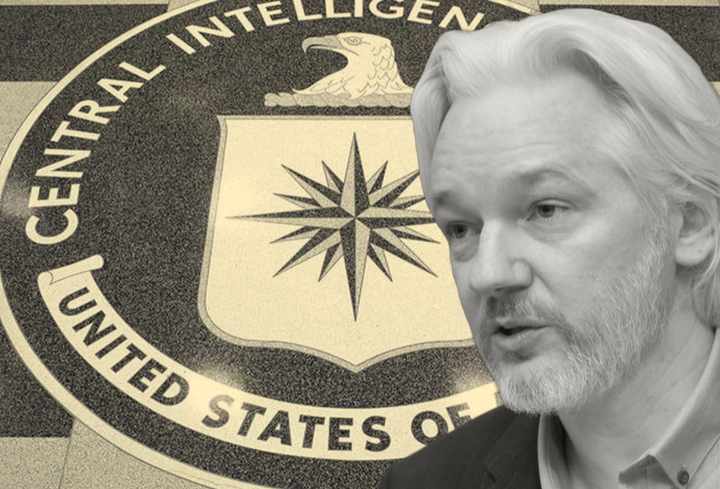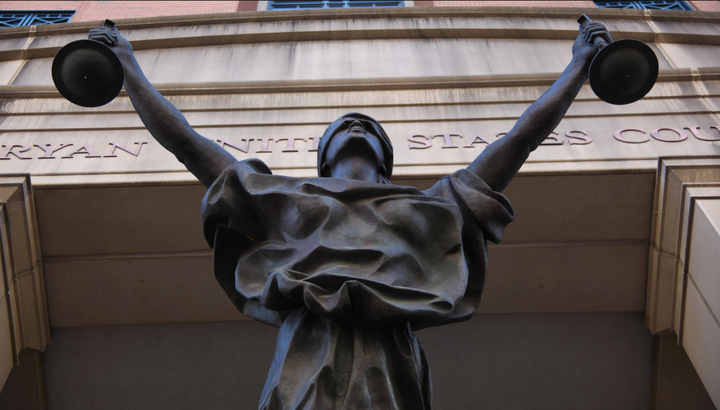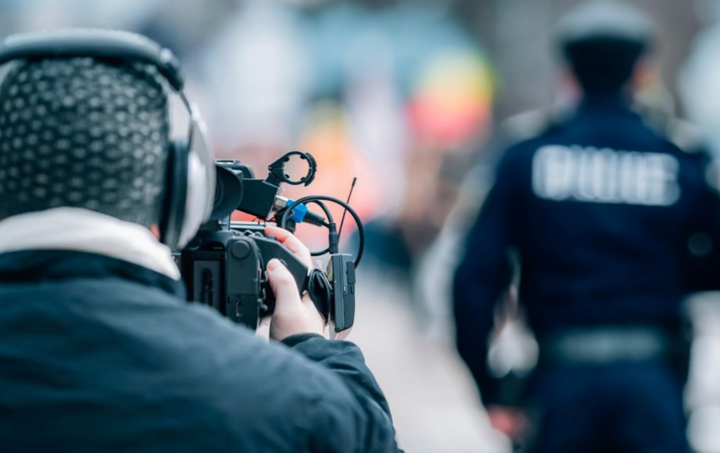Three Stories That Further Illustrate Why US Government Can't Be Trusted In Assange Case

Three requests for information related to spying on WikiLeaks founder Julian Assange were sent by Spanish judges to the United States Justice Department. The first request occurred in June 2020, but according to Yahoo! News, U.S. officials still refuse to cooperate with Spanish authorities.
Santiago Pedraz, who is the “investigating judge in charge of the case,” told Yahoo! News he is “not so pleased about it.” Justice Department lawyers have not abided by their obligations under a mutual legal assistance treaty between the U.S. and Spain.
A criminal case against Undercover Global director David Morales is pending in the Spanish courts. He faces allegations of privacy violations as well as counts of bribery, money laundering, and criminal possession of a weapon that stem from a complaint filed by Assange.
According to U.C. Global employees, U.S. intelligence agencies had access to video and audio surveillance from hidden microphones that were installed while Assange was living under political asylum at the Ecuador embassy. Yahoo! News confirmed through one source that U.S. intelligence had access to audio and video feeds.
Yahoo! News obtained copies of requests for information that show the judges primarily are interested in “information about the ownership of IP addresses believed to be in the United States that had access to files documenting Assange’s activities while he was holed up in the Ecuadorian Embassy in London.”
But U.S. officials demanded another judge, Judge José de la Mata, reveal the identities of whistleblowers from U.C. Global. If Spain’s High Court chooses to protect their identities, U.S. officials will not provide information to assist the court.
Assange is detained at Her Majesty’s Prison Belmarsh in London, a high-security prison where he has been held since he was expelled from the Ecuador Embassy on April 11, 2019. He faces 18 charges—17 of which are charges under the Espionage Act.
District Judge Vanessa Baraitser ruled on January 4 that Assange’s mental health was such that it would be “oppressive to extradite him” to the U.S. However, Baraitser kept Assange in detention and the U.S. government immediately appealed.
The prosecution against Assange has been strongly condemned by the vast majority of global press freedom organizations, and the High Court of Justice is expected to issue a decision on the appeal in December.
Another report from John McEvoy and Pablo Navarrete for MintPress News set the record straight on false claims that Assange sought to obtain protection by accepting a diplomatic post in Russia so he could leave the Ecuador embassy.
Aitor Martinez, an Assange attorney who was involved in “Ecuador’s effort to grant Assange diplomatic protection,” said the countries considered were Bolivia, China, Cuba, Serbia, and Venezuela.
“Of course, they were the countries that don’t have good relations with the U.S. and could accept the appointment. Russia was never, ever on that list. There was a huge conspiracy theory in the U.S. with Russiagate; it didn’t make sense,” Martinez declared.
But the Ministry of Foreign Affairs appointed Assange to Russia against the wishes of his legal team.
According to Martinez, “Foreign Minister María Fernanda Espinosa’s cousin worked at the Ecuadorian Embassy in Moscow and, through this cousin, she concocted a plan to appoint Assange to the one country that was the subject of mass media hysteria.”
Rommy Vallejo, head of Senain, Ecuador’s main intelligence agency, came to the embassy on December 21, 2017, to discuss plans for leaving the embassy and hand him a passport to replace the one that assigned him to a post in Russia.
U.C. Global opened Vallejo’s mobile phone, which he left at the embassy’s security checkpoint. They took the IMEI code and sim card. Senain hired U.C. Global, and they turned around and spied on the agency’s chief.
A chat from U.C. Global shows “they were listening through the door and everything,” Martinez stated. “They knew everything about the operation, and we didn’t know they were spying on us, and reporting everything to the Americans, according to the witness declarations before the Spanish court.”
Soon, as Martinez recalled, the U.S. ambassador in Quito came to Martinez’s office and indicated he knew of the Assange legal team’s plan to leave the embassy. “
“We know that Julian Assange is about to leave the embassy using a diplomatic passport, and we will never allow it,” the ambassador reportedly said.
“Now we can assume that it was because UC Global sent information about the plan. So, she [the foreign minister] said we have to stop everything because the Americans know,” Martinez added.
At the time, they had no idea how the U.S. could possibly know about the plan.
U.C. Global was also drafting “exaggerated reports” to feed to U.S. intelligence agents so they could link Assange to Russian operatives.
The Yahoo! News report demonstrates how successful the private security company was in convincing security officials of this lie.
“U.S. officials picked up what they viewed as alarming reports that Russian intelligence operatives were preparing to sneak Assange out of the United Kingdom and spirit him away to Moscow,” the report declared.
It also stated, “At the time, Ecuadorian officials had begun efforts to grant Assange diplomatic status as part of a scheme to give him cover to leave the embassy and fly to Moscow to serve in the country’s Russian mission.”
Supposedly, the reports fed to them by U.C. Global fueled preparations for wild scenarios, like “potential gun battles with Kremlin operatives on the streets of London, crashing a car into a Russian diplomatic vehicle transporting Assange and then grabbing him, and shooting out the tires of a Russian plane carrying Assange before it could take off for Moscow.”
Even though Yahoo! News interviewed Martinez, Yahoo! News pandered to the “Assange was working for Russia” narrative popularized by Western establishment media, though there was no concrete evidence. What Martinez told MintPress News was not reflected in the report on the CIA’s secret war on WikiLeaks.
Finally, journalist Richard Medhurst obtained documents related to the 2009 extradition of David Mendoza Herrarte from Spain to the U.S. Diplomatic assurances were given by the U.S. government to Spain, but the U.S. violated those assurances.
Mendoza was accused of drug trafficking. As the Assange legal team recounted in a filing submitted to the High Court, “The Spanish Court made Mendoza’s extradition conditional on prisoner transfer back to Spain to serve any sentence. In response, the U.S. provided the same assurance offered here to the Spanish Court.”
“Upon surrender, the prosecution did, as promised, consent to the application. It was then however refused by the DoJ. When the Spanish court complained of the ‘clear breach’ of the assurance, the USA retorted that ‘the U.S. did not make and therefore could not and did not renege on a promise guaranteeing that Mendoza would comply with the sentence imposed in Spain.”
“The promise that was made at the time,” U.S. authorities claimed, was that Mendoza could apply for protection under the Treaty of the Council of Europe to serve his sentence in Spain.
In the Assange extradition case, the U.S. government has once again offered a similar assurance. They say Assange could apply for a transfer to Australia because he is an Australian citizen and serve any prison sentence in his home country.
Yet, as reported by Medhurst, “Mendoza spent over six years in the United States trying to return to Spain. Court documents show how the United States denied his transfer application multiple times.”
Based on his own experience, Mendoza told Medhurst, “With the Assange thing, I can see it black and white. They [Australia] are not going to do a thing. Under the treaty, all three parties must agree: Julian, Australia, and the United States. But the U.S. can tell Australia behind the scenes: ‘screw this guy, don’t do anything.’”
The details of Mendoza’s case are stunning. They add up to a flagrant disregard for the terms of extradition that were agreed upon between the U.S. and a European country.
U.S. officials have offered a potential transfer to Australia because they do not want cruel and inhuman prison conditions in the U.S. to be a barrier to Assange's extradition. But officials could easily repeat what the U.S. did to Mendoza and deny Assange’s application multiple times, which would mean he would still be subjected to conditions oppressive to his mental health.




Comments ()